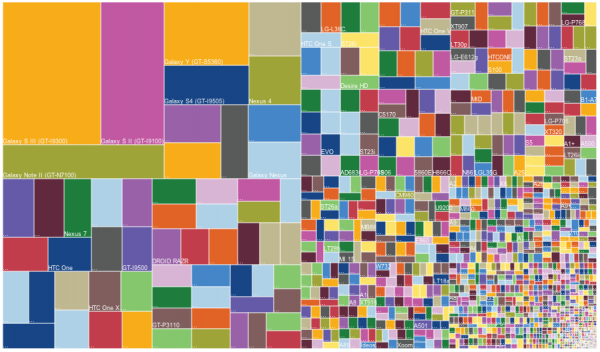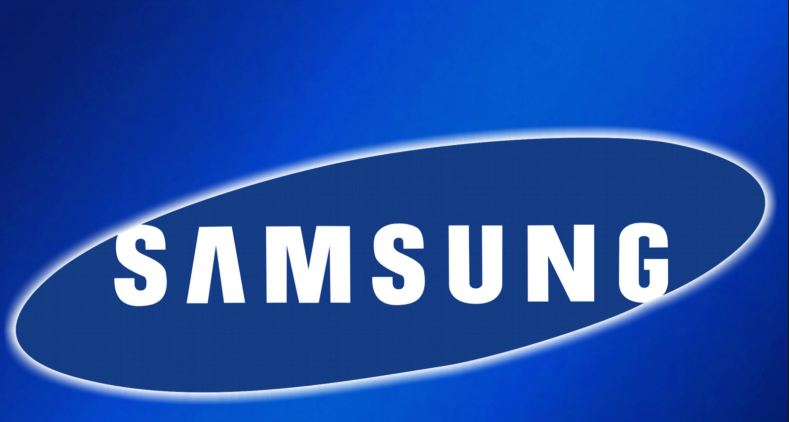 With the release of iOS 7 on Apple products and increasing talk of Android 4.4 KitKat being imminently released in October, conversations on the age-old topic of Android fragmentation have been rekindled, often perceived as the greatest ‘weakness’ of the Android ecosystem. The issue is that there are hundreds of different phones made by a plethora of manufacturers and just as many different versions of Android floating around to accommodate them. This makes app compatibility a nightmare, creating dissatisfaction within the Android community with a lack of software updates, either on time, or at all. However, is this really a weakness? Sure, plenty of people are dissatisfied with the slow updates to phones in the active pipeline, but there could be sense in all this madness, and what is generally seen as ‘weakness’ might actually be Android’s greatest strength.
With the release of iOS 7 on Apple products and increasing talk of Android 4.4 KitKat being imminently released in October, conversations on the age-old topic of Android fragmentation have been rekindled, often perceived as the greatest ‘weakness’ of the Android ecosystem. The issue is that there are hundreds of different phones made by a plethora of manufacturers and just as many different versions of Android floating around to accommodate them. This makes app compatibility a nightmare, creating dissatisfaction within the Android community with a lack of software updates, either on time, or at all. However, is this really a weakness? Sure, plenty of people are dissatisfied with the slow updates to phones in the active pipeline, but there could be sense in all this madness, and what is generally seen as ‘weakness’ might actually be Android’s greatest strength.
The issue of fragmentation is seeded in the battle between the major smartphone operating systems, iOS and Android. Relatively speaking, iOS is the more conservative of the two, having released iOS 7 a year after its predecessor iOS 6. There is obviously something to respect in the fact that when a new version of iOS is released, most of its compatible handsets can be updated. Part of this is the fact that Apple no only develops iOS itself, but also creates the hardware, effectively giving it closed-loop control over how the hardware reacts to new software.
Android is at the other end of this spectrum, with countless manufacturers, each with their own range of devices and each with varying versions of Android. Throw in the dissatisfaction due to the speed of Android software updates and you begin to see where members of the tech community have become jaded. The big difference between the iOS and Android systems happens when a new version of Android is released; this new software is taken in by all the various phone manufacturers who try and shoehorn it onto their phones with their own proprietary software skins and then test it for compatibility. On top of this, carrier versions shoehorn even more proprietary software in and even further testing is required. This is not to say this is the way software updates should continue to be done, but it is what it is and in the grand scheme of Android fragmentation, it contributes very little. Undoubtedly though, it does create delays with each successive development added on top.
With the delays in mind, just how ‘bad’ is Android’s fragmentation? The Developers blog on the Android site actually publishes  the current distribution of Android versions every month based on the phones that have accessed the Google Play Store in the last two weeks. And while it isn’t a perfect census of the Android population, it’s as good as any indicator as to what the distribution of Android versions is. In September, the Play Store was updated to support only Android 2.2 and up, but in the last census in August, there was still 0.1% of the Android install base that was running on Android 1.6 Donut. Imagine an iPhone still rocking the original iOS. Unheard of right?
 The crux of the fragmentation debate is that with this many phones on this many versions of Android, “How is it ever going to be possible to update them all to the newest, shiniest version, particularly as new versions are being announced every 6 months or less?” Well, the answer to that is very simple, which might make a few people cringe, and that answer is that it isn’t possible. But more crucially, it doesn’t need to be possible. Android’s prime selling point over iOS is customization, and that customization extends beyond software and includes hardware too. Can’t afford the newest Android flagship? No worries, get the next best thing on the market. Still too expensive? There is still an option for you, right down to the cheap and nasty.
The crux of the fragmentation debate is that with this many phones on this many versions of Android, “How is it ever going to be possible to update them all to the newest, shiniest version, particularly as new versions are being announced every 6 months or less?” Well, the answer to that is very simple, which might make a few people cringe, and that answer is that it isn’t possible. But more crucially, it doesn’t need to be possible. Android’s prime selling point over iOS is customization, and that customization extends beyond software and includes hardware too. Can’t afford the newest Android flagship? No worries, get the next best thing on the market. Still too expensive? There is still an option for you, right down to the cheap and nasty.
But iOS also supports older handsets too, you might say, but remember that there are still only 7 handsets dating back to the original iPhone; with Android, we’re talking about hundreds of variants, each with its own optimized version of Android, whether it be Donut or Jelly Bean. However, while definitely true in the truest sense of the word, rather than thinking of the Android ecosystem as negatively ‘fragmented’, we should be seeing it as ‘flexible’; available to even the dumbest of smartphones right up to the creme da la creme of Android smartphone royalty.
 This, of course, isn’t meant to be an indictment on the iOS platform; what the iOS platform does very well is providing the latest iOS experience to everyone that it possibly can. Similarly though, Android, with a degree of complexity thanks to its plethora of manufacturers, also achieves this by ensuring that every handset available is supported at a level that suits the phone’s capabilities; is there really any point to having Bluetooth 4.0 compatibility on a phone that doesn’t support it? Furthermore, if you compare the leap that iOS 7 is for the iOS platform compared to the improvements that Android 4.3 was over 4.2, while it might seem minor in comparison, many of the features introduced into iOS 7 have existed on Android for several years already.
This, of course, isn’t meant to be an indictment on the iOS platform; what the iOS platform does very well is providing the latest iOS experience to everyone that it possibly can. Similarly though, Android, with a degree of complexity thanks to its plethora of manufacturers, also achieves this by ensuring that every handset available is supported at a level that suits the phone’s capabilities; is there really any point to having Bluetooth 4.0 compatibility on a phone that doesn’t support it? Furthermore, if you compare the leap that iOS 7 is for the iOS platform compared to the improvements that Android 4.3 was over 4.2, while it might seem minor in comparison, many of the features introduced into iOS 7 have existed on Android for several years already.
Many of us tend to dismiss the tail-end of the Android ecosystem, even forgetting they exist, and focus instead on berating manufacturers and carriers alike for not introducing the newest versions of Android on the newest Android handsets faster. The fact of the matter is that not everyone needs updates and while getting an update does make you feel like the manufacturer still cares about your phone’s existence, provided you care at all, your phone would still most likely be fully functional without it. And when it comes to the issue of app compatibility, yes, not being able to run the latest apps on your bottom-of-the-range, or even mid-range, smartphone can be annoying, even infuriating, but the simple fact that there is a phone for whatever your price range is a flexibility that is only afforded to you with Android.
While you may dismiss the arguments above as moot and still declare fragmentation to be the disease that will plague Android forever more, I will say once more that while it may be fragmented, this fragmentation allows Android to reach more people and be supported on more handsets of all shapes and sizes than Apple could ever imagine. THAT is the greatest strength of Android.










